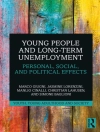Cultural Criminology: An Invitation traces the history, theory, methodology and future direction of cultural criminology.
Drawing on issues of representation, meaning and politics, this book walks you through the key areas that make up this fascinating approach to the study of crime.
The second edition has been fully revised to take account of recent developments in this fast developing field, thereby keeping you up-to-date with the issues facing cultural criminologists today. It includes:
- A new chapter on war, terrorism and the state
- New sections on cultural criminology and the politics of gender, and green cultural criminology
- Two new and expanded chapters on research methodology within the field of cultural criminology
- Further Reading suggestions and a list of related films and documentaries at the end of each chapter, enabling you to take your studies beyond the classroom
- New and updated vignettes, examples, and visual illustrations throughout
Building on the success of the first edition, Cultural Criminology: An Invitation offers a vibrant and cutting-edge introduction to this growing field. It will encourage you to adopt a critical and contemporary approach to your studies in criminology.
First edition: 2009 Distinguished Book Award from the American Society of Criminology′s Division of International Criminology
Table des matières
Chapter 1: Cultural Criminology: An Invitation
Chapter 2: The Gathering Storm
Chapter 3: The Storm Breaks: Cultural Criminology Now
Chapter 4: A Cultural Criminology of the Everyday
Chapter 5: War, Terrorism and the State: A Cultural Criminological Introduction
Chapter 6: Media, Representation and Meaning: Inside the Hall of Mirrors
Chapter 7: Against Criminological Method
Chapter 8: Dangerous Knowledge: Methods of Cultural Criminology
Chapter 9: Conclusions
A propos de l’auteur
Jock Young, one of the foremost criminologists of our time, is Professor of Sociology and Head of the Centre for Criminology at Middlesex University. His work and theories have had a significant influence on the shape of criminology, sociology and politics.












